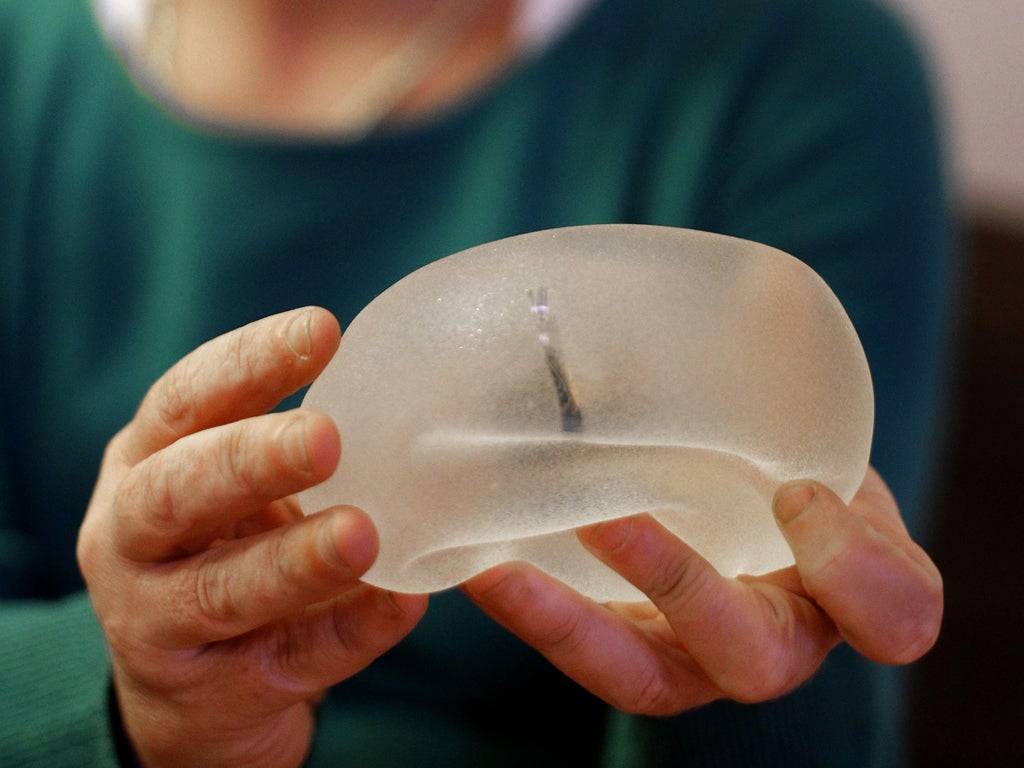Faulty breast implants contain toxic chemicals, scientists warn
New warning from France as Government doctors in UK advise women to undergo surgical removal

The defective breast implants at the centre of a health scare involving more than 40,000 British women have been found to contain a range of potentially harmful chemicals, including a fuel additive, by scientists in France.
Other components of the non-medical grade silicone used to fill the implants made by the French company Poly Implant Prothese (PIP) include substances used in rubber tubing.
The disclosure by the Paris radio station RTL, which commissioned chemists to analyse the implants, comes as the French medical regulator AFFSAPS reported that 1,140 women in France with PIP implants had suffered ruptures. Of these, more than 500 had "inflammatory reactions", which could make surgical removal more difficult. About 30,000 women in France had the implants inserted before they were banned in 2010.
In the UK, Tim Goodacre, a member of the government-commissioned panel investigating the scandal, said that given the "uncertainty and lack of knowledge" about the extent of the problems, all women with the faulty implants should have them removed.
The latest estimate of rupture rates was "very much higher" than he would consider acceptable, he said. France has recommended removal of the implants and has said it will foot the bill – but the British government has advised women to wait until the outcome of its review.
The Medicines and Healthcare Products Regulatory Agency (MHRA) has said the risk of rupture is only 1 per cent, but one cosmetic surgery chain told ministers privately that the figure could be as high as 7 or 8 per cent.
Mr Goodacre, the president of the British Association of Plastic, Reconstructive and Aesthetic Surgeons (Bapras), who works mainly in the NHS, told BBC Radio 4's The World At One: "Even with a very low rupture rate, we would want to see most implants removed on a staged basis.
"If you believe a device is faulty – I think this would be true in your car or any other object that you buy – you would want to have that replaced on a staged basis. Certainly this is a very much higher rupture rate than we would consider acceptable at all. Good implants put in by reputable people really have an extraordinarily low failure rate so this is quite out of the ordinary."
But Mr Goodacre said there was "no immediate cause for concern" as there was no cancer risk and no evidence of "major health detriment".
The lawyer representing Jean-Claude Mas, the 72-year-old founder of PIP who is facing manslaughter charges in France, denied yesterday that his client was on the run. Yves Haddad said Mr Mas was in Toulon and preparing to make a statement. He had admitted using a "home-made gel" in the implants because it was cheaper, but denied it was an industrial silicone. He said instead it was a "food-related product" which did not pose any health risk.
Join our commenting forum
Join thought-provoking conversations, follow other Independent readers and see their replies
Comments